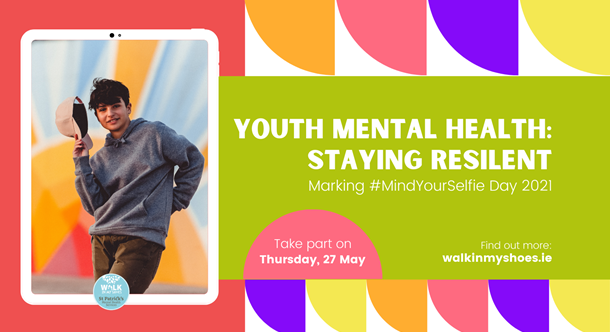
Watch a clinical psychologist share advice for teachers on how to increase compassion and kindness in the classroom.
Teachers can be influential in supporting young people going through a tough time. Dr Ellen Butler, Clinical Psychologist at St Patrick's Mental Health Services, shares some guidance for teachers on how to make the classroom a safe, supportive place for students.
Dr Butler explains that schools play a protective role in young people’s mental health. It's important that school is somewhere students feel connected to others, where there is understanding around what they find hard, and where they can get support. In this talk, aimed to support teachers in their roles, Dr Butler hopes to introduce ways of increasing compassion in the classroom.
What is compassion?
Compassion means both the ability to engage with pain or suffering and to having the motivation to ease that pain. Compassion is a quality that involves nurturing, teaching, guiding, mentoring and offering feelings of acceptance and belonging. This often makes compassion a core value in educational settings, where these feelings and behaviours are helpful for both students and teachers.
Why is compassion important in schools?
Dr Butler explains that young people get their first lessons in self-care from the adults around them. Young people’s ability to manage their emotions depends in some way on the quality of interactions with the adults in their lives, including teachers and school staff. When the adults around them offer comfort and strength, young people benefit from this throughout their lives. Experiencing compassion in the classroom is something that will stand to young people as they grow older.
As a teacher, being compassionate means tuning into what a young person is finding hard and being creative in helping them with that difficulty. It is not about being a therapist – it can be as simple as spending a few moments with the young person, recognising their difficulty and thinking about what they may need in that moment. The right tone of voice, facial expressions, posture and so on can be powerful ways of communicating compassion also.
How can we grow compassion in schools?
Dr Butler talks through some tips and guidance for increasing kindness and compassion in the classroom, all of which come from a Compassion-Focused Therapy approach. This approach recognises that none of us chose our brains, emotions or sense of self, but that we have to try to figure these out. How our brains and bodies work is not our fault, but they are our responsibility.
For example, in the classroom, young people’s brains can be pulled more easily towards things that might go wrong, that are scary or that seem hard. A compassionate approach encourages us to see young people’s behaviours in the classroom context. It involves us understanding that young people can often cope with difficult emotions in unhealthy ways or for reasons beyond their control – such as social inequality or traumatic experiences - but they are often doing the best they can in the situation they find themselves in.
In the talk, Dr Butler shows how teachers and school staff can take this compassionate approach through key themes like social safeness, and by helping young people to balance their emotional regulation systems. She shares practical tips for dealing with young people who are having difficulties, such as a compassionate colour exercise and mind mapping.
The talk finishes with a simple reminder about encouraging kindness in our classrooms and schools: small changes really can make huge differences.




